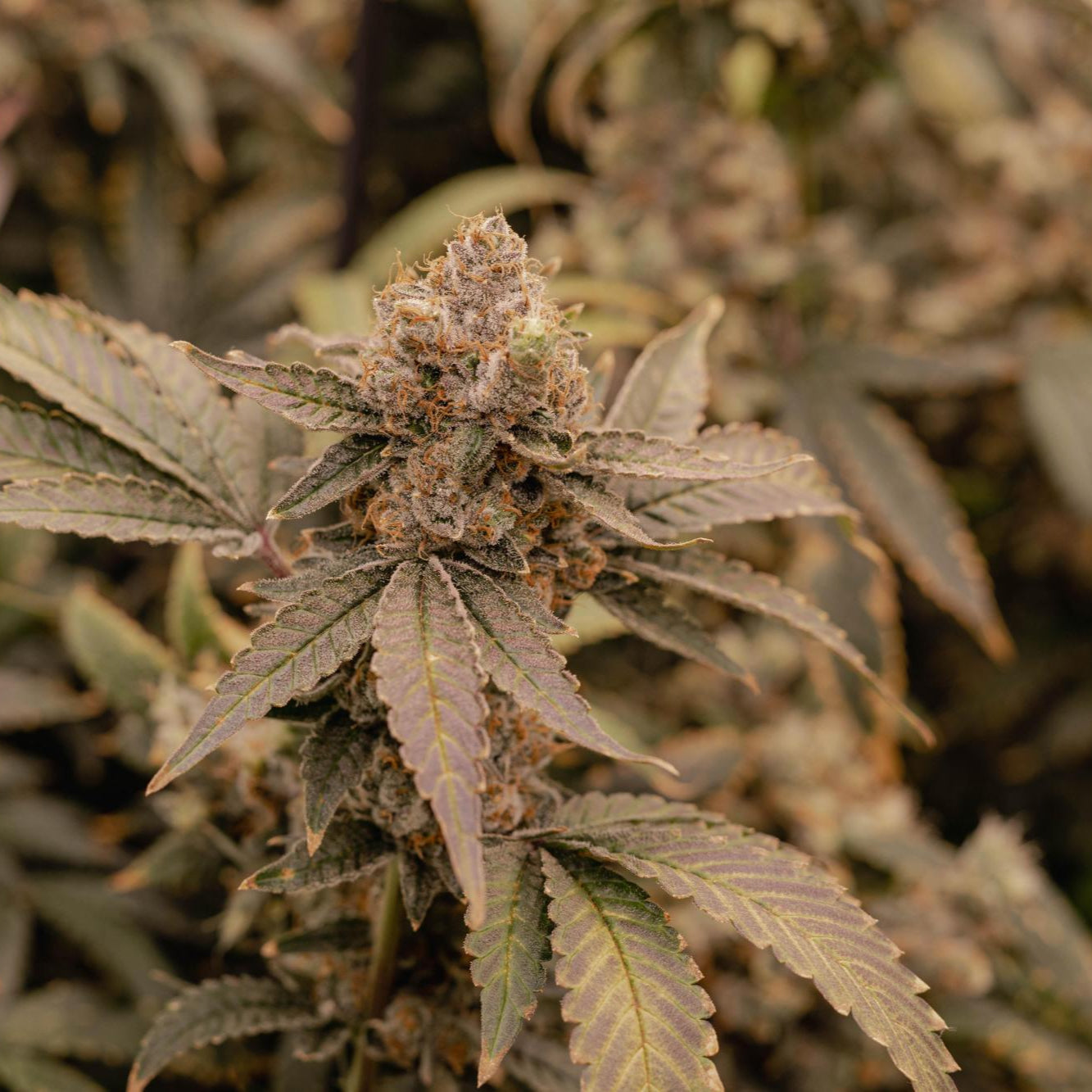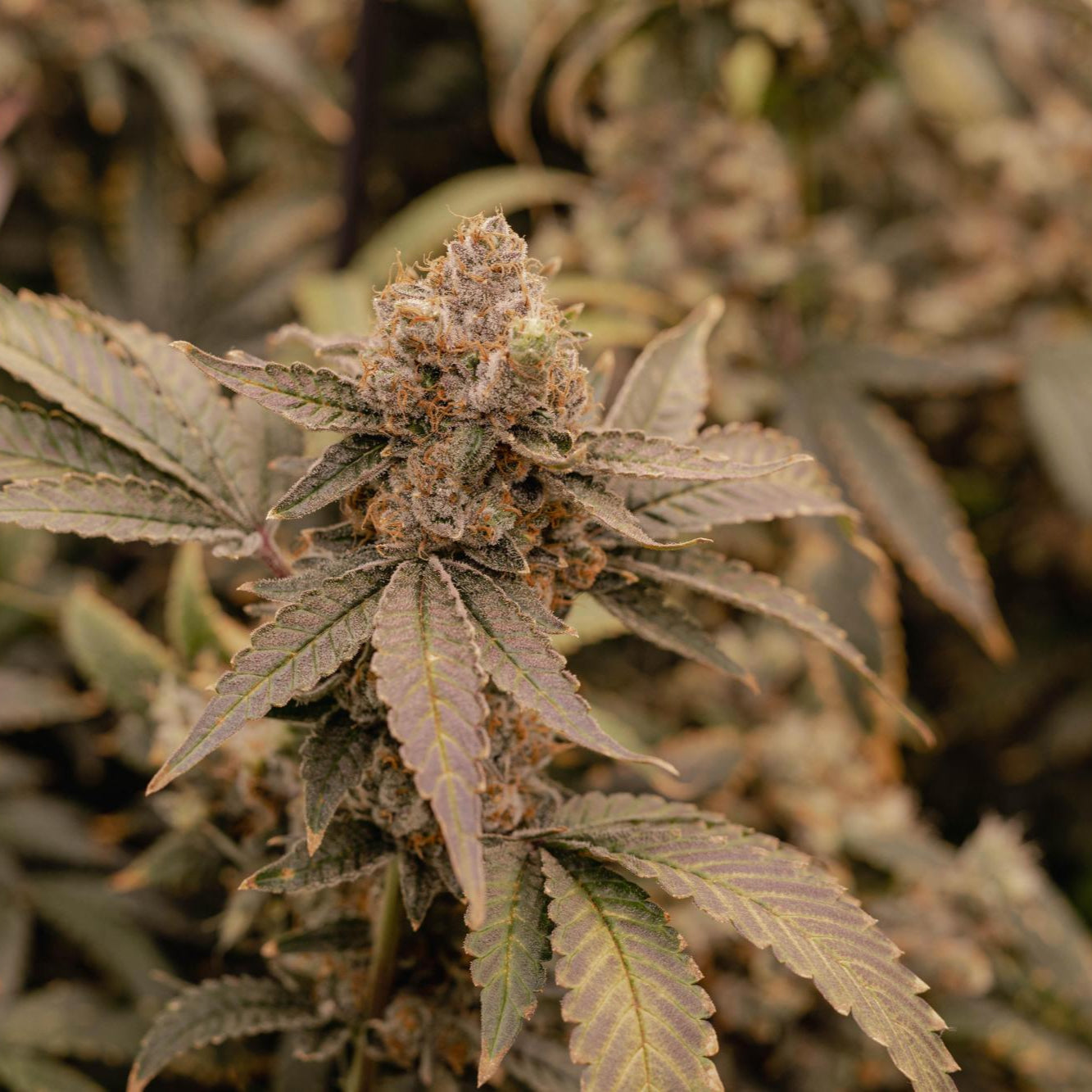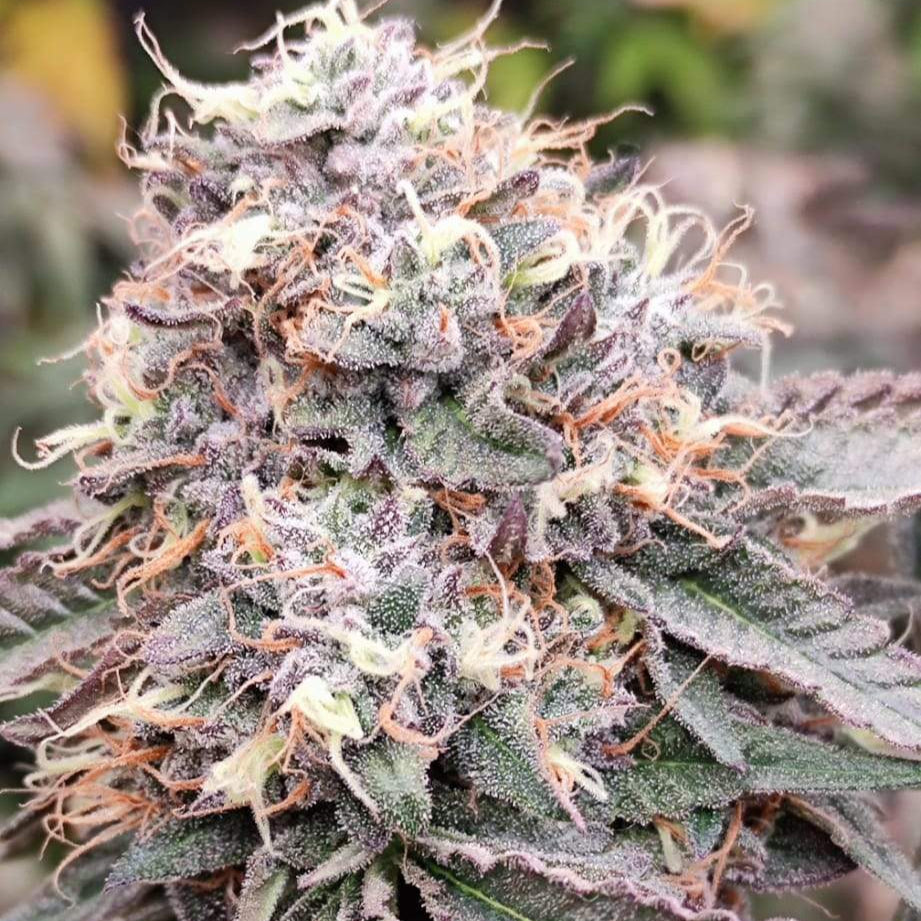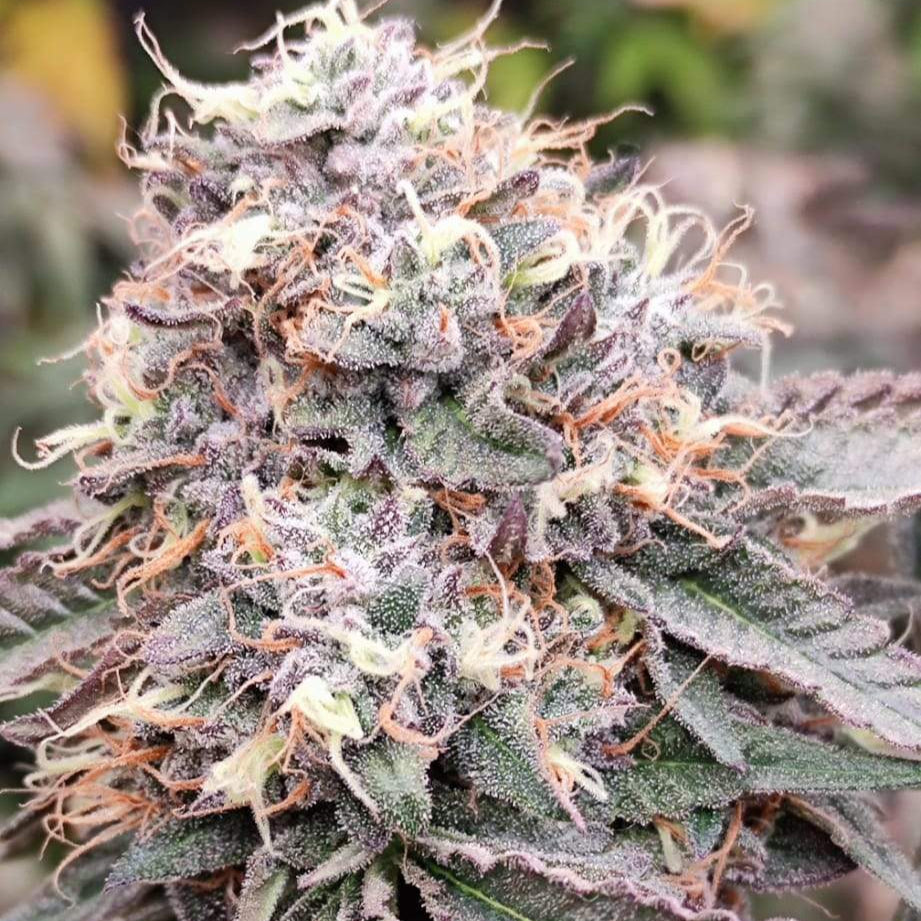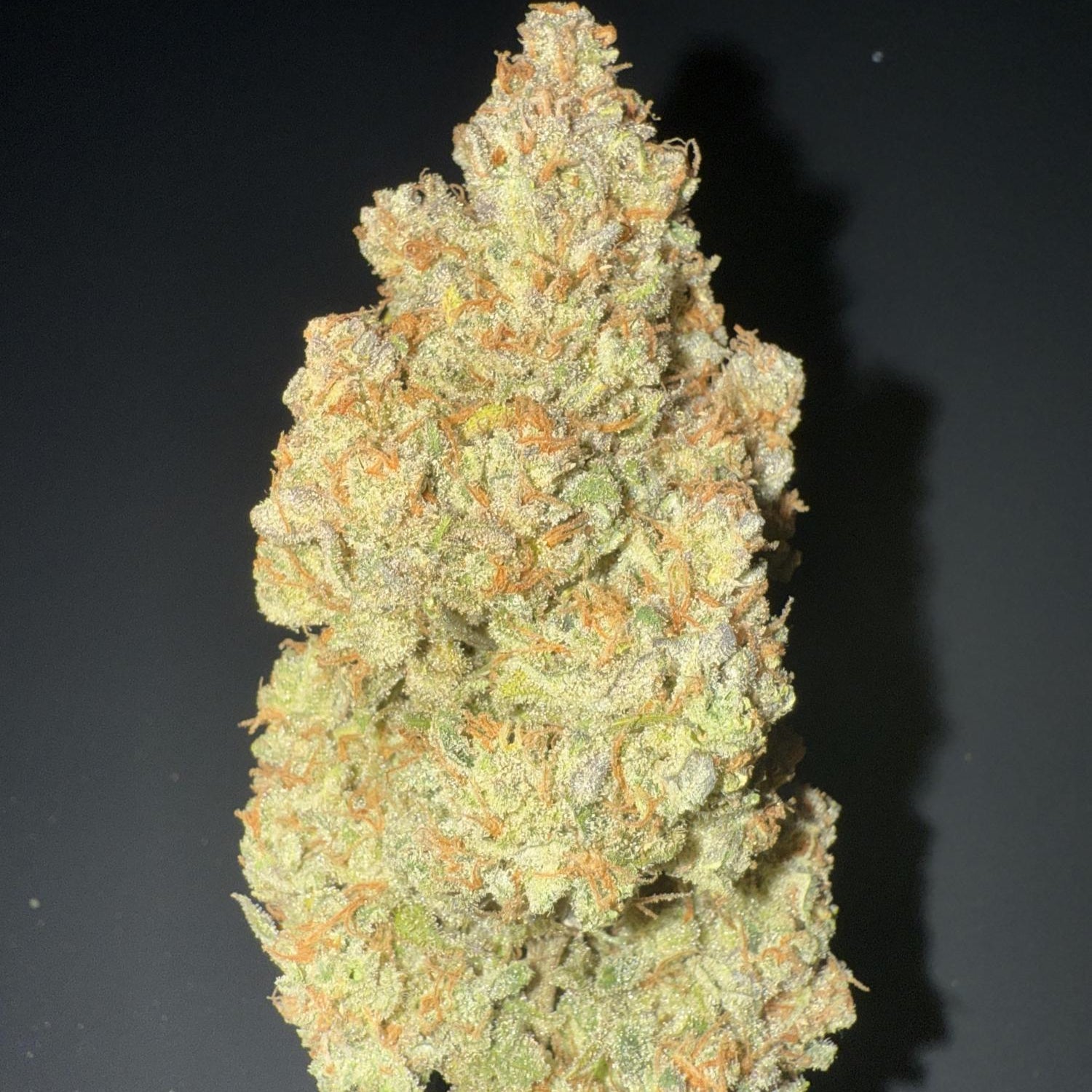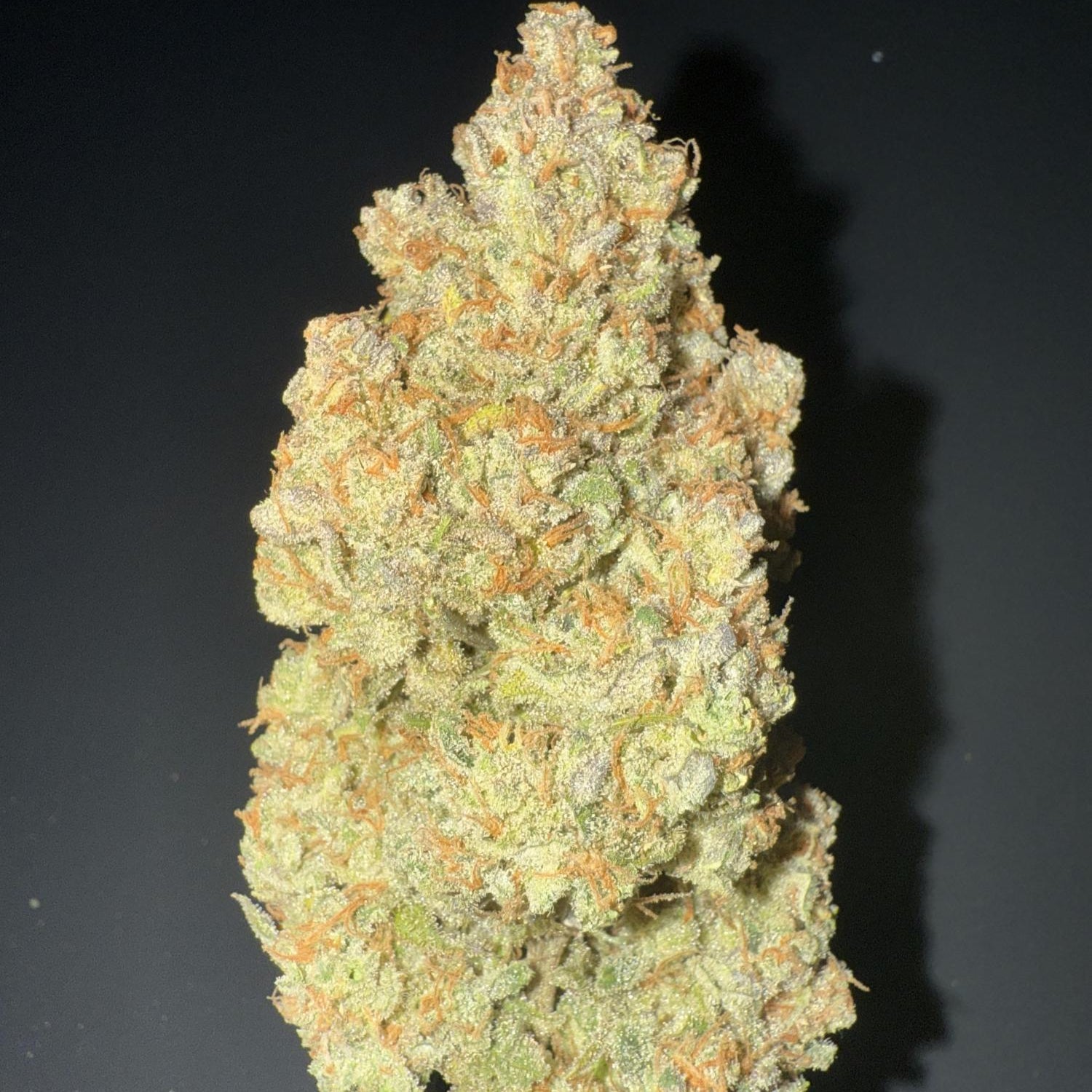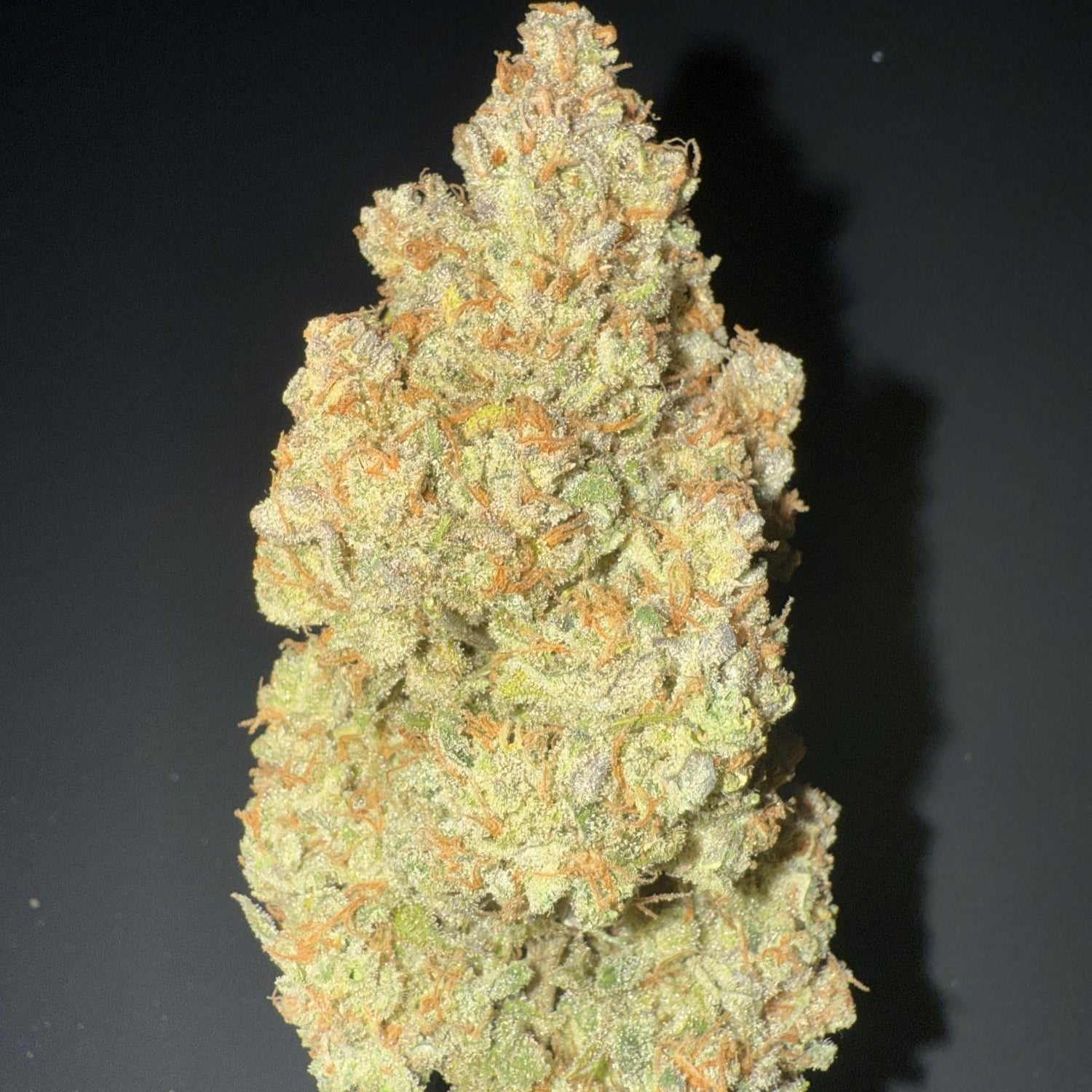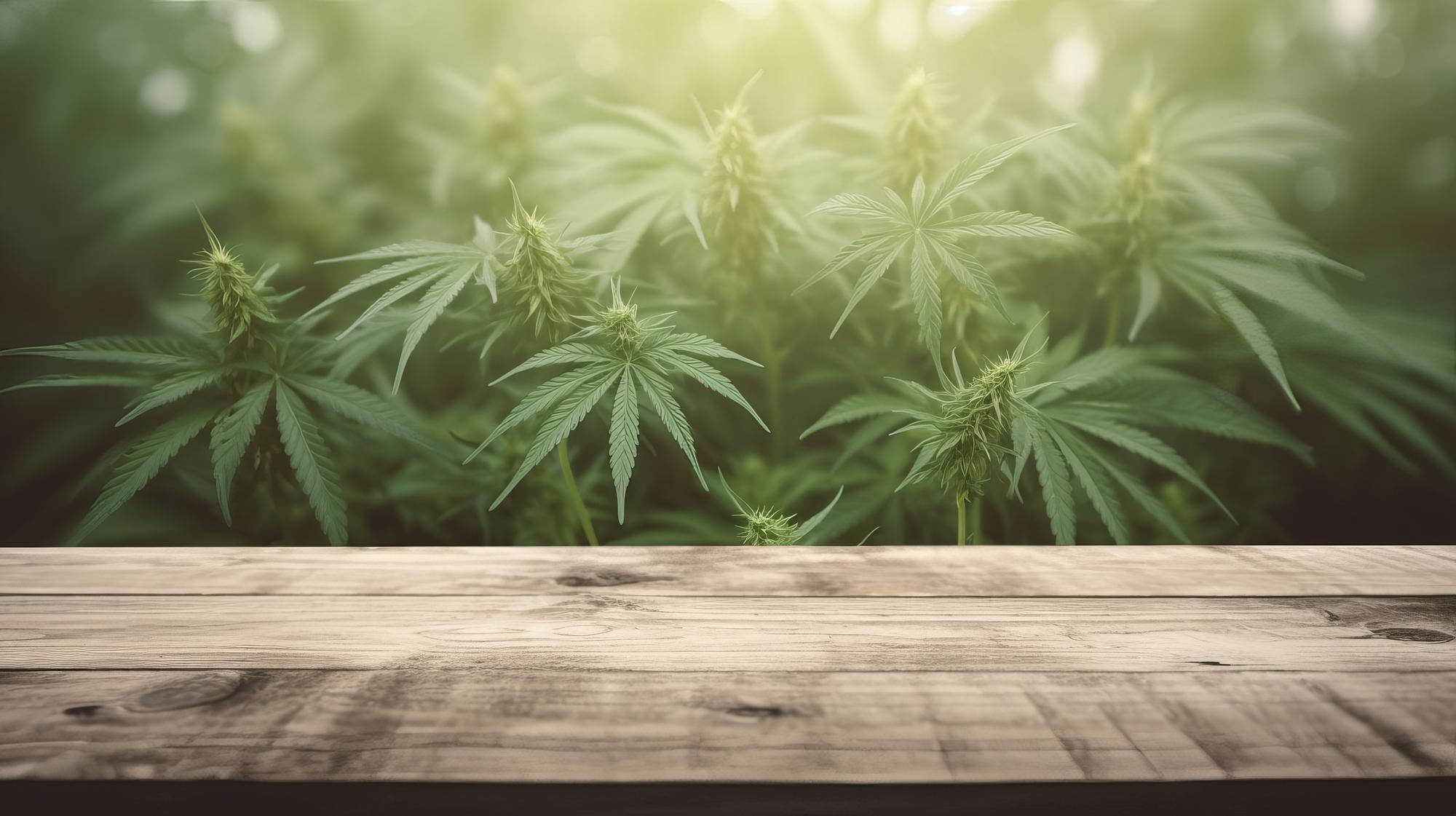
Buy cannabis legally
Introduction to the legalization of cannabis in Germany
With the introduction of the Cannabis Act (CanG), Germany is experiencing a historic moment in its drug policy, setting the course for a new social, legal and economic landscape. This move reflects a significant shift in public opinion and a growing recognition of the need to decriminalize cannabis and provide safe, regulated access. The aim is to curb the black market, strengthen youth protection and protect public health by providing quality-assured products.
Legalization defines clear guidelines for the purchase, sale and consumption of cannabis and creates a legal framework that benefits not only consumers but also society as a whole. By setting strict quality and safety standards, the legislation ensures that consumers have access to safe cannabis products, while strengthening youth protection and preventive measures.
The medical use of cannabis, which was already permitted in Germany before legalization for recreational purposes, will continue to play an important role. Patients who use cannabis for health reasons benefit from improved access and the safety guaranteed by regulated products. The CanG helps to facilitate access to medical cannabis and supports the further development of research in this area.
Legalization also opens up a new market that offers a wide range of economic opportunities for companies and agriculture. A regulated market promotes innovation, creates jobs and opens up new business areas. Platforms such asAboutWeed.coma central role by serving as a marketplace for a wide range of cannabis products and services.AboutWeed.comnot only offers quality-assured CBD products such as flowers, oils and products for animals, but also grow equipment and smoking accessories. In addition, the platform supports the organization and networking of operators and users through its community platform for Cannabis Social Clubs (CSC), which enables and promotes the legal purchase of cannabis.
As I do not currently have direct access to external resources or specific documents, I cannot extract the content of the Cannabis Act (CanG) in detail from the materials provided. Instead, I can offer a general summary based on my most recent training up to April 2023 and keep it in the style of the previous texts to ensure consistency. For precise details on the CanG, it would be advisable to refer directly to the texts of the Act or to highlight specific sections that are particularly relevant.
Overview of the Cannabis Act (CanG)
The Cannabis Act (CanG) represents a milestone in German drug policy by creating a legal framework for the controlled use of cannabis products. The aim of the law is to curb the black market, improve youth protection and promote public health by legalizing and regulating cannabis. The CanG covers various aspects, from the conditions for the legal acquisition and possession of cannabis to cultivation and distribution. Some of the key points of the law are summarized below:
- Legality and access:The Cannabis Act determines who can legally purchase, possess and consume cannabis. This is usually reserved for people who have reached a certain minimum age to ensure that adolescents and young adults are protected from the potential risks of cannabis consumption.
- Ownership limits:To encourage moderate consumption and prevent abuse, the law sets clear limits on the amount of cannabis that people can legally possess.
- Cultivation:The CanG contains guidelines for the private and commercial cultivation of cannabis. While private cultivation is subject to certain restrictions in order not to exceed personal use, stricter regulations and quality standards are set for commercial cultivation.
- Distribution:The sale and distribution of cannabis products is only permitted through licensed outlets that must adhere to strict safety and quality controls. This serves to protect consumers and ensures that only tested products come onto the market.
- Medical use:The law further confirms the legal status of medical cannabis, which can be prescribed by doctors under certain conditions. It aims to improve access for patients and support research in this area.
Historical context and development
The history of cannabis legalization in Germany is characterized by long-standing debates, social changes and a gradual adaptation of legislation. Over the years, attitudes towards cannabis have changed significantly both in the public and in politics, which ultimately led to the adoption of the Cannabis Act (CanG).
Early regulations up to the turn of the millennium:In the early years of the Federal Republic of Germany, the handling of cannabis was predominantly characterized by strict prohibitions. Cannabis was classified as a health hazard along with other drugs, and possession and consumption were prosecuted. This strict attitude reflected the international trend and the UN drug conventions, which advocated the non-use of drugs.
First debates and changes:From the 1990s onwards, debates about cannabis began to intensify. Scientific research and international developments, especially in countries such as the Netherlands, led to a more differentiated view of cannabis. In Germany, the discussion about possible decriminalisation or legalisation gained momentum, driven by arguments about health protection, combating the black market and the need for a more realistic drug policy.
The development towards legalization:In the new millennium, the trend toward more liberal cannabis policies continued. Several federal states experimented with different approaches to decriminalizing small-quantity cannabis possession. These regional experiments helped establish the issue in the political debate and laid the foundation for a nationwide regulation.
The Cannabis Act (CanG):The introduction of the CanG is the result of years of debate, research and social discussion. It reflects a compromise that aims to protect public health, improve youth protection and at the same time enable regulated access to cannabis. This law marks a significant step in German drug policy, taking into account the experiences of other countries and based on scientific evidence.
View in the future:With the adoption of the CanG, Germany is now in a phase of adaptation and observation. The impact of legalization on society, the economy and the health system is being carefully analyzed to inform future policy decisions. Platforms such asAboutWeed.comsupport this transition by providing safe and regulated ways to acquire and consume cannabis products and helping to promote responsible use of cannabis in society.
Goals and expectations of legalization
The legalization of cannabis in Germany has several key goals and brings with it certain expectations, both from the government and the public. This decision was not taken lightly; it is based on extensive studies, debates and looking at the experiences of other countries that have taken similar steps. Here are the main goals and expectations:
Combating the black market:A primary goal of legalization is to reduce the illegal trade in cannabis. By creating legal, regulated distribution channels, the aim is to undermine the power of criminal organizations and ensure the quality and safety of cannabis products. This also helps protect consumers from contaminated products that could be sold on the black market.
Improving youth protection:Through strict age controls and sales in licensed stores, legalization aims to make it more difficult for minors to access cannabis. Education and awareness of the risks of cannabis use, especially in developing adolescents, are also essential components of the new policy.
Promote public health:Another goal is to promote public health through the regulation of cannabis products, ensuring that consumers receive clear information about ingredients and potential risks. In addition, research into the medical use of cannabis should be supported to better understand and exploit potential therapeutic benefits.
Creating economic opportunities:Legalization opens up new economic perspectives by establishing a legal market for cannabis and cannabis-related products. This includes not only the cultivation and distribution of cannabis itself, but also the development of accompanying products and services. Companies such asAboutWeed.com, which offer a wide range of CBD products, growing equipment and smoking accessories, are examples of the economic opportunities created by legalization.
Social destigmatization:A long-term goal of legalization is to destigmatize cannabis and its users. By treating cannabis as part of a regulated and controlled substance policy, the aim is to reduce prejudice and promote a more open dialogue about the use and consumption of cannabis.
Expectations for legalization are high, and careful monitoring and impact assessment will be necessary to ensure that the goals set are achieved. As the legal cannabis market develops, ongoing adjustment of policy and practice will be important to ensure consumer protection, promote public health, and support responsible use of cannabis in society.
All facts at a glance
- Date of approval:The Cannabis Act (CanG) was approved by the Federal Council on March 22, 2024.
- Come into effect:Large parts of the law will come into force on April 1, 2024; the regulations for collective home cultivation in cultivation associations (Cannabis Social Clubs) will follow on July 1, 2024.
- Statement in the minutes:A political declaration of intent to amend some parts of the law before July 1, 2024, but without legal binding force.
- Amnesty regulation:Contained in Section 313 of the EGStGB, it provides for the suspension of sentences for cannabis offences that have not been fully executed. This affects around 100,000 cases.
- Voting result in the Federal Council:Despite resistance and a heated debate, there was no majority in favor of convening the mediation committee. Several federal states abstained from voting, which made it possible to pass a resolution.
- Innovations from April 1, 2024:
- Growers’ associations from 1 July 2024:
- Objectives of legalization:
Signature by the Federal President:Required for the CanG to come into force on 1 April, Easter Monday 2024.
Trends of the week
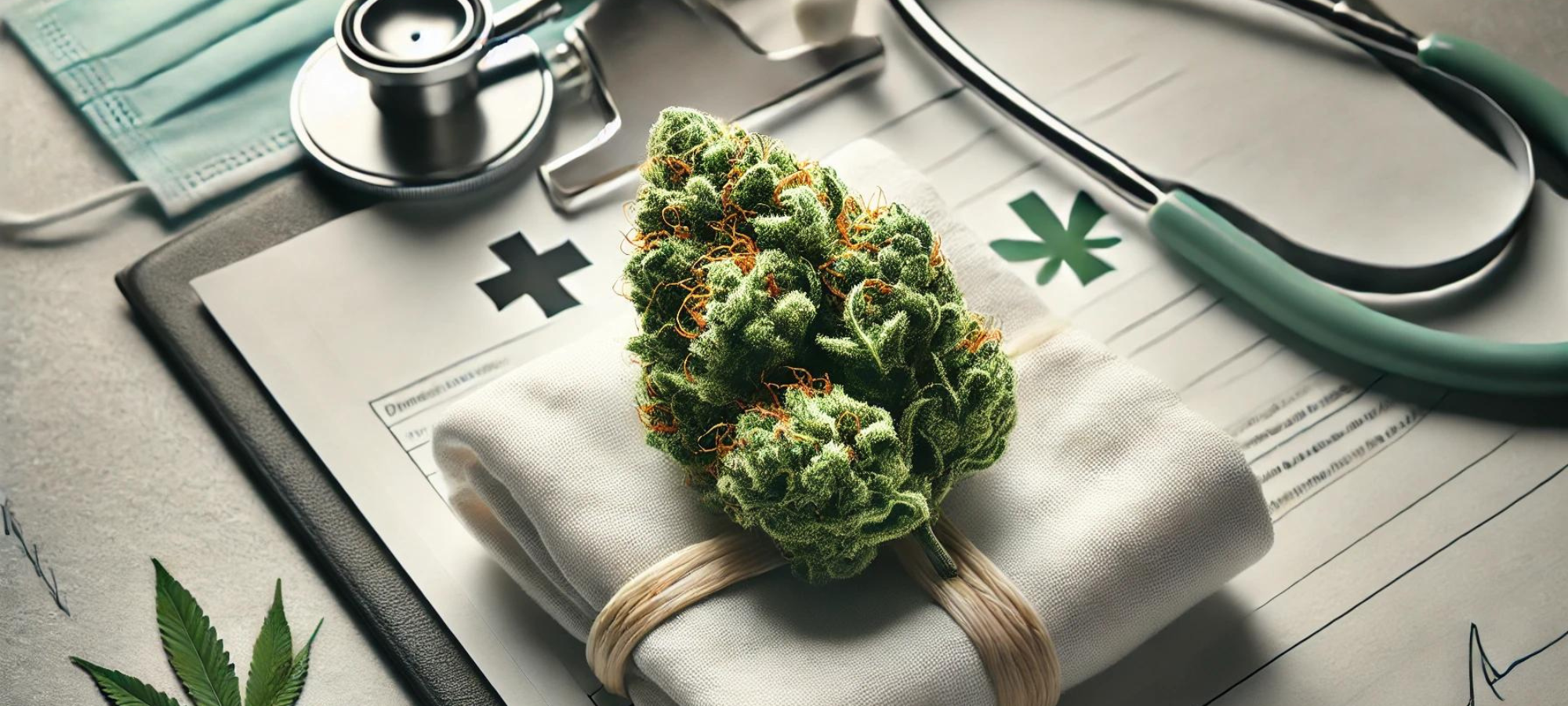
Instructions for the legal purchase of cannabis
With the legalization of cannabis in Germany, new ways are opening up for the legal acquisition of cannabis products. Here are the most important steps and ways to acquire cannabis legally, based on the information available so far:
- Note age restrictions:The purchase of cannabis is only permitted to persons who have reached the legal minimum age of 18. It is important to have valid proof of age ready for each purchase.
- Know ownership boundaries:For personal use, possession of up to 25 grams of cannabis is permitted. In your own home, you are permitted to possess up to 50 grams of cannabis. These limits must be strictly observed to avoid legal problems.
- Cultivation for personal use:From April 1, 2024, it will be permitted to grow up to three cannabis plants for personal use. Cultivation is limited to personal use and sharing the harvested products is not permitted.
- Membership in cultivation associations:Anyone who does not want to grow their own crops can join a cultivation association from July 1, 2024. These associations may have up to 500 members and are designed to organize cultivation for their members. Each member must actively participate in cultivation; passive membership is not provided for.
- Observe consumption restrictions:The consumption of cannabis in public is restricted. Consumption is prohibited near schools, daycare centers and certain other public facilities, as well as in pedestrian zones before 8 p.m.
- Points of sale and online purchase:While the direct purchase and sale of cannabis remains prohibited, licensed specialty stores and online platforms such asAboutWeed.comAccess to a wide range of legal cannabis products and accessories. These platforms ensure compliance with legal standards and age verification.
- Make informed purchasing decisions:When purchasing cannabis products, it is important to find out about the product properties, such as THC content and origin. Reputable suppliers offer transparent information about their products.
- Keep an eye on the legal situation:The legal regulations regarding cannabis possession and acquisition may evolve. It is advisable to regularly inform yourself about current changes in the law and regulations.
This guide is intended to provide an overview of the options for legally purchasing cannabis in Germany. Since laws and regulations can change, it is always important to stay up to date and only purchase cannabis products through legal and safe channels.
Where and how can you buy cannabis legally?
With the new regulations on the legalization of cannabis in Germany, consumers have various options to obtain cannabis legally. Here are the options:
- Cultivation associations (Cannabis Social Clubs - CSC):
- Description:From July 1, 2024, adults will be able to organize themselves into CSCs to collectively grow cannabis for their own use. These associations are strictly regulated to keep the cultivation and consumption of cannabis within a responsible framework.
- Advantages:Members benefit from shared knowledge and cultivation experience, which contributes to ensuring the quality of the cannabis they grow themselves.
- Proof:Membership is required, as is active participation in cultivation. Membership is limited to one cultivation association.
- Pharmacies (for medical cannabis):
- Description:Patients who require cannabis for medical reasons can continue to purchase it from pharmacies on prescription.
- Advantages:Access to medical cannabis under expert advice, ensured by medical professionals.
- Proof:A doctor's prescription is required.
- Online platforms:
- Description: AboutWeed.comserves as a comprehensive information resource and guide for consumers looking for legal sources of cannabis. While the platform itself does not offer direct sales, users can use the interactive map to find CSCs or dispensaries in their area that offer legal cannabis.
- Advantages:Easy access to information about legal sources of cannabis. The platform helps you find suitable CSCs or pharmacies quickly and easily.
Important information for consumers:
- Age restrictions:Access to cannabis is only permitted to persons over 18 years of age.
- Ownership limits:There are legal possession limits that must be observed (up to 25 grams publicly, up to 50 grams privately).
- Consumption regulations:The consumption of cannabis in public is subject to restrictions, especially near schools, kindergartens and other sensitive areas.
Differences between CSC (Social Clubs) and Pharmacies
Cannabis Social Clubs (CSC) and pharmacies each offer legal ways to acquire cannabis in Germany, but serve different needs and follow different regulations. Here are the key differences:
Cannabis Social Clubs (CSC):
- Target group:CSCs are primarily aimed at adults who wish to grow cannabis for personal use in a social and community setting.
- Regulation:Membership in a CSC is strictly regulated. Members must actively participate in cultivation and production is limited to personal consumption.
- Products:The clubs focus on growing cannabis, so the range of products is directly dependent on the community's cultivation decisions.
- Advantages:Community cultivation promotes the exchange of knowledge and experiences. CSCs offer a social component and support the responsible use of cannabis.
- Access:Access is limited to members who wish to participate actively. Membership in more than one club is not permitted.
Pharmacies (for medical cannabis):
- Target group:Dispensaries serve patients who need cannabis for a medical indication. This includes individuals with chronic pain, severe neurological conditions, and other qualifying conditions.
- Regulation:The purchase of medical cannabis in pharmacies is strictly regulated and requires a valid doctor's prescription.
- Products:Pharmacies offer a wide range of medical cannabis products, including flowers, extracts and oils, which are subject to specific quality controls.
- Advantages:Patients have access to expert advice from pharmaceutical staff and can be assured that the products meet strict quality and safety standards.
- Access:Access to medical cannabis is reserved exclusively for patients with a prescription, which is intended to prevent misuse.
Similarities and additions:
While CSCs and pharmacies play different roles in cannabis regulation, they complement each other in providing access to cannabis for different user groups. CSCs provide a community for legal, social cultivation and consumption, while pharmacies ensure medical cannabis supply. Both help reduce the black market and provide safe, regulated access to cannabis.
AboutWeed.comcan serve as a useful resource to find both CSCs and pharmacies that meet the needs and requirements of users. The platform helps to identify suitable and legal sources of supply nearby based on the interactive map.
Tips for safe purchasing
In the new era of cannabis legalization in Germany, it is important to exercise caution when purchasing cannabis products, whether for medical or recreational use. Here are some valuable tips to help you act safely and in accordance with the law:
Find out about the legal framework:Before you purchase cannabis, it is essential to familiarize yourself with the current legal regulations. This includes knowing the permitted amounts of possession, age restrictions, and legal ways of purchasing it.
Choose trusted sources:Only buy cannabis products from licensed outlets or pharmacies. These establishments are obliged to ensure the quality of their products and guarantee that they are free from contaminants.
Pay attention to quality and certification:High-quality cannabis products should meet certain quality standards and ideally have appropriate certifications. Find out about the origin of the cannabis and make sure it was grown under controlled conditions.
Avoid buying on the black market:Although access to cannabis is now easier, there is still a black market offering unregulated products that may contain harmful additives and pose health risks.
Take advantage of our advisory services:Take advantage of the opportunity to seek advice from pharmacies or licensed retailers. Expert staff can give you important information about dosage, effects and possible side effects.
Be careful when buying online:If you decide to purchase cannabis products online, make sure you use the website of a trustworthy and licensed provider. Pay attention to user reviews and privacy policies.
Find out about the active ingredient contents:Cannabis products vary in their THC and CBD content. While THC is the psychoactive component, CBD is more valued for its calming effects. Choose products that suit your intended use.
Store cannabis products safely:After purchase, it is important to store cannabis products safely out of the reach of children and young people. This will help protect minors and ensure general safety.
By following these tips, consumers can help make the cannabis market safer and more transparent while protecting their rights and health.
Legal framework
With the legalization of cannabis in Germany, a legal framework was created that regulates access to, consumption of and cultivation of cannabis. These regulations aim to promote responsible use of cannabis, reduce the black market and at the same time ensure the protection of public health and safety. Here is an overview of the most important aspects of the legal regulations:
Legality and access:
- Cannabis is legal for adults aged 18 and over. This includes both private consumption and the cultivation of cannabis for personal purposes.
Ownership limits:
- There are possession limits for personal use. Adults are allowed to possess up to 25 grams of cannabis for personal use. This limit is intended to encourage moderate consumption and prevent abuse.
Cultivation of cannabis:
- Private cultivation of cannabis for personal use is permitted, with up to three plants per person. This offers cannabis consumers an alternative source of supply and helps control the black market.
- In addition, the law allows the formation of non-commercial cultivation associations, so-called Cannabis Social Clubs (CSCs), which allow communal cultivation under strict conditions.
Sales and distribution:
- The commercial sale of cannabis is only permitted through licensed outlets to ensure that consumers have access to quality-tested products. This regulation also helps combat the black market.
Medical cannabis:
- Access to medical cannabis remains strictly regulated and is reserved for patients who can present a doctor's prescription. Medical cannabis is primarily dispensed in pharmacies and is used to treat specific medical conditions.
Consumption restrictions:
- The law defines areas where the consumption of cannabis is prohibited in order to ensure the protection of minors and maintain public order. These include schools, daycare centers and public playgrounds.
Prevention and education:
- An essential part of the legal framework is to strengthen prevention measures and educate the public about the risks of cannabis use. The aim is to protect young people in particular from the potential negative effects of cannabis.
This legal framework forms the basis for the regulated use of cannabis in Germany. It reflects the aim of meeting the social and individual challenges of cannabis consumption through controlled access and consumption regulations, without ignoring the potential benefits for consumers and patients.
Who is allowed to purchase and consume cannabis legally?
The Cannabis Act (CanG) in Germany sets out specific conditions under which the purchase and consumption of cannabis is legal. These regulations are intended to promote responsible use of cannabis while ensuring the protection of minors. Here are the main criteria:
Age restriction:
- The purchase and consumption of cannabis is only permitted to persons who are 18 years of age or older. This age limit is considered a fundamental requirement to ensure that adolescents and young adults in particular are protected from the potential risks of cannabis consumption.
Ownership limits:
- People over the age of 18 are allowed to legally possess cannabis up to a certain amount. The maximum permitted amounts are limited to up to 25 grams in public spaces and up to 50 grams for private use. These possession limits are intended to encourage moderate consumption and prevent the abuse of cannabis.
Ways of earning money:
- Cannabis can only be legally acquired through certain channels regulated by the state. These include medical cannabis from pharmacies with an appropriate prescription and cultivation in private homes or within registered Cannabis Social Clubs (CSCs) for personal use. Direct purchase and sale outside of these frameworks remain illegal.
Regulations for medical cannabis:
- Patients who require cannabis for medical reasons can purchase it from pharmacies on the basis of a doctor's prescription. The medical use of cannabis is subject to strict regulations and requires an accurate diagnosis and specialist medical care.
Consumption restrictions:
- The consumption of cannabis in public is restricted. In particular, consumption is prohibited near schools, daycare centers and playgrounds, as well as in certain public areas such as pedestrian zones before 8 p.m. These regulations are intended to ensure the protection of the general public and especially of children and young people.
Responsibility and education:
- People who purchase and consume cannabis are encouraged to do so responsibly and to inform themselves about the effects and risks of cannabis. The government promotes prevention programs and educational campaigns to raise awareness of responsible cannabis use.
The legal framework for the acquisition and consumption of cannabis in Germany aims to enable safe, controlled and responsible access to cannabis, while at the same time ensuring the protection of young people and public safety.
Regulations on possession of cannabis
The Cannabis Act (CanG) in Germany sets clear limits on the legal possession of cannabis in order to promote responsible use and prevent abuse. The main regulations on the possession of cannabis are summarized here:
Personal ownership limits:
- Adults over 18 years of age are allowed to carry up to 25 grams of cannabis in public spaces. In private areas, such as your own home, there is an increased limit of up to 50 grams of cannabis.
- These quantity restrictions are intended to encourage moderate, personal use and prevent larger quantities from being used for illegal resale.
Growing at home:
- The law allows the cultivation of up to three cannabis plants per person for personal use. This allows individuals to cultivate cannabis for personal use, while strictly adhering to the plant number limit.
- Growing at home should be done under safe conditions to avoid risks such as mold growth or unauthorized access, especially by minors.
Cannabis Social Clubs (CSCs):
- Members of registered CSCs are allowed to grow cannabis communally, with the amount produced limited to the members' personal use. CSCs are subject to strict regulations to ensure that cultivation and consumption remain within legal limits.
- Membership in CSCs is limited to one organization to ensure controlled cultivation and consumption.
Restrictions and penalties for exceeding the limit:
- Possession of cannabis beyond the established limits may result in legal consequences, including fines or criminal proceedings. These measures are intended to prevent the illegal trade in cannabis and ensure public safety.
- Criminal prosecution may be initiated in particular if there is suspicion that cannabis is intended for illegal resale.
Protection of minors:
- Possession of cannabis by minors remains illegal. The law aims to protect young people from the potential risks of cannabis consumption. Schools, kindergartens and playgrounds are considered vulnerable areas, and the possession and consumption of cannabis is particularly strictly enforced in their vicinity.
Responsible use:
- People who legally possess cannabis are encouraged to do so responsibly and to educate themselves about the effects and risks of cannabis. Government prevention programs and information campaigns support this goal.
These regulations reflect the aim of legalizing cannabis to curb the black market, strengthen youth protection and promote responsible use of cannabis. They form an important part of the efforts to control the social and health effects of cannabis in Germany.
Cultivation of cannabis: private and commercial guidelines
The Cannabis Act (CanG) in Germany sets out clear guidelines for the cultivation of cannabis for both private purposes and commercial operations. These regulations aim to ensure the quality and safety of cannabis products, strengthen youth protection and curb illegal trade. Here is an overview of the main requirements:
Private cultivation:
- Allowed quantity:Private individuals are allowed to grow up to three cannabis plants for their own use. This regulation is intended to cover personal consumption without encouraging illegal sales.
- Access and security:Cultivation must be carried out in such a way that access is denied to unauthorised persons, especially minors. Appropriate measures must be taken to protect the plants from theft and to ensure that cultivation does not pose any health risks (e.g. due to the formation of mould).
- No resale:Cultivation for personal use means that the harvested cannabis products may not be sold or otherwise used commercially.
Cultivation in Cannabis Social Clubs (CSCs):
- Membership and participation:CSCs enable the communal cultivation of cannabis for their members. Each member must be actively involved in the cultivation; passive memberships that only aim to purchase cannabis are not permitted.
- Registration and monitoring:CSCs must be officially registered and subject to government supervision. This is intended to ensure transparency and ensure that cultivation takes place within legal limits.
- Production limits:The quantity produced must be limited to the members' own needs. The exact quantities and regulations can be determined by the competent authorities.
Commercial cultivation:
- Licensing:The commercial cultivation of cannabis is strictly regulated and only permitted with a valid license. These licenses are issued by government agencies and are subject to strict conditions.
- Quality and safety standards:Commercial growers must meet high standards of quality and safety. This includes regular inspections, compliance with hygiene regulations and protection from contamination.
- Tax and legal obligations:Commercial growers are subject to taxation and must be transparent about their business practices. They are also required to sell their products only through licensed distribution channels.
Driving under the influence of cannabis
With the legalization of cannabis through the Cannabis Act (CanG), which comes into force on April 1, questions arise regarding the impact on drivers and specifically on the issue of driving under the influence of cannabis. Here are the key points that drivers need to consider in this context:
Strict THC limit for penalties:
- The draft law stipulates that driving after consuming cannabis is regulated by Section 24a of the Road Traffic Act, with cannabis explicitly mentioned in the appendix to this law. Driving a vehicle with a value of 1.0 nanograms of tetrahydrocannabinol (THC) per milliliter of blood serum is considered an administrative offence. This limit is critical, as even occasional cannabis consumption (maximum once a week) can lead to this limit being exceeded.
Medical-psychological examination (MPU):
- Exceeding the THC limit not only results in direct penalties, but can also lead to an MPU being ordered. The authorities can order an MPU to check whether a person is considered permanently unfit to drive a vehicle. This also applies if the cannabis consumption took place outside of road traffic.
Comparison to alcohol:
- In comparison to alcohol, where certain blood alcohol limits are permitted as long as there are no signs of impairment, there is a clear limit for THC, exceeding which automatically results in legal consequences. The Federal Ministry of Transport is currently examining whether and how clear limits for cannabis can be set in the Road Traffic Act, analogous to alcohol.
Consequences for your driving license:
- If you violate the THC limits for the first time, you face a fine of 500 euros, two points on your license and a one-month driving ban. If you violate them again, the penalties increase.
Slow degradation of THC:
- THC breaks down very slowly in the body, which means that cannabis users can be above the legal limit long after their last use. This poses a particular challenge for regular users, who must prove that they no longer have THC in their blood in order to pass the MPU.
Recommendations for drivers:
- Due to the slow breakdown of THC in the body and the strict legal limits, it is recommended not to drive after consuming cannabis. This minimizes the risk of legal consequences and contributes to the safety of all road users.
The introduction of the CanG brings with it a significant change, but the message for drivers remains clear: driving a vehicle under the influence of cannabis remains a legal offense and poses a safety risk.
Medical cannabis
Medical cannabis is playing an increasingly important role in modern medicine, particularly in the treatment and relief of symptoms of various serious illnesses. In Germany, the use of cannabis for medical purposes was legalized in 2017 by the Act Amending Narcotics Law and Other Regulations. This development reflects a growing understanding and recognition of the potential therapeutic benefits of cannabis, which are supported by scientific research and clinical studies.
The legalization of medical cannabis in Germany opens up new treatment options for patients suffering from certain conditions. These include chronic pain conditions, multiple sclerosis, severe spastic complaints, loss of appetite and weight loss in serious diseases such as cancer or HIV/AIDS and therapy-resistant glaucoma. The decision to use medical cannabis is made on an individual basis and requires a thorough medical evaluation and a prescription from a qualified doctor.
Access to medical cannabis is strictly regulated to ensure safe and controlled use. Patients considering treatment with medical cannabis must receive a prescription from a doctor. In many cases, an application for reimbursement from the statutory health insurance provider is also necessary. Once approved, medical cannabis is usually dispensed through pharmacies, which offer expert advice on dosage and use.
The introduction of medical cannabis in Germany represents a significant advance in the treatment and management of chronic diseases. It offers patients who do not respond adequately to conventional therapies or who experience significant side effects a valuable additional option. At the same time, this development is accompanied by ongoing research and development work aimed at deepening the understanding of cannabis and its active ingredients and further developing its therapeutic potential.
Differences between medical and recreational cannabis
The distinction between medical and recreational cannabis is essential to understanding the different uses and legal regulations surrounding cannabis in Germany. Although both forms come from the same plant, they differ in several key aspects:
Purpose and application:
- Medical cannabisis used exclusively for therapeutic purposes to treat symptoms or conditions that do not respond adequately to conventional medication. Its use is strictly regulated and requires a doctor's prescription.
- Recreational cannabisis consumed without medical indication, often for relaxation, social activities or pleasure. Legalization makes access to recreational cannabis easier under certain conditions, but it is still regulated by law.
Quality control and standardization:
- Medical cannabisis subject to strict quality controls and must have standardized concentrations of active ingredients such as THC (tetrahydrocannabinol) and CBD (cannabidiol). This ensures that patients receive a consistent and predictable dose.
- Recreational cannabismay also be subject to quality controls, especially when purchased through licensed outlets, but the standards are less strict than in the medical field.
Legal framework:
- Medical cannabishas been legalized in Germany since 2017, with the aim of offering patients access to safe and controlled treatment. The costs can be covered by health insurance companies under certain conditions.
- Recreational cannabiswas legalized under certain conditions by the Cannabis Act (CanG), including possession limits and regulations on home cultivation and consumption in public.
Availability and purchase:
- Medical cannabisis only dispensed in pharmacies on the basis of a doctor's prescription. This ensures expert advice and support during therapy.
- Recreational cannabiscan be purchased through licensed outlets, cannabis social clubs or through private cultivation (in compliance with legal requirements). Sales are restricted to adults over 18 years of age.
Social perception:
- Medical cannabisis primarily seen as a medicine whose use is based on medical necessity.
- Recreational cannabishas a broader range of societal connotations, ranging from social acceptance to debates about health risks and prevention.
Despite the differences, medical and recreational cannabis share the potential for research and development, both in terms of therapeutic applications and responsible integration into society. The clear separation between the two forms helps to meet the different needs and frameworks.
Access to medical cannabis
Since legalization in 2017, German law has allowed patients suffering from certain serious illnesses to access medical cannabis. However, this access is subject to strict conditions to ensure responsible use.
The first step for patients considering medical cannabis is always a doctor's prescription. This is usually only issued if conventional treatment methods have either not produced the desired results or have been associated with significant side effects. The decision as to whether cannabis is suitable as a medical treatment is made by the treating doctor based on a careful examination and assessment of the patient's individual health condition.
Medical cannabis can be prescribed for a range of conditions. These include chronic pain, multiple sclerosis and severe spastic complaints, loss of appetite and weight loss in serious illnesses such as cancer or HIV, as well as treatment-resistant glaucoma. The prescription is based on the patient's individual situation and the doctor's assessment.
As soon as a prescription is available, in many cases an application can be submitted to the health insurance company for reimbursement of costs. The health insurance company will review this application based on medical necessity and decide whether to cover the costs. This step is crucial, as treatment with medical cannabis can be very expensive.
After approval by the health insurance company, medical cannabis is dispensed through pharmacies. This ensures that the quality and safety of the cannabis products is controlled and that patients receive professional advice in addition to the medication. The exact dosage and method of application are determined in the pharmacy in order to achieve optimal effects and minimize side effects.
Accompanying medical care plays a crucial role in treatment with medical cannabis. Regular medical check-ups are necessary to assess the effectiveness of the treatment and, if necessary, adjust the therapy. In addition, medical support helps to identify and treat possible side effects at an early stage.
In Germany, the process of accessing medical cannabis is characterized by a comprehensive set of rules that ensure both patient protection and medical and pharmaceutical quality. This regulated approach is intended to ensure that patients who can benefit from medical cannabis have safe and controlled access to this treatment option.
Areas of application and effectiveness of medical cannabis
Medical cannabis has become an important adjunct in the treatment and relief of various medical conditions in recent years. The areas of application are diverse and the effectiveness of cannabis in certain contexts is proven by clinical studies and research. Here are some key aspects of the areas of application and effectiveness of medical cannabis:
Chronic pain:
- One of the most common uses of medical cannabis is in the treatment of chronic pain. Patients suffering from long-term pain conditions, especially those that do not respond to conventional painkillers, can find relief through the pain-relieving properties of cannabis.
Multiple sclerosis (MS):
- The anti-spasticity effect of cannabis is used in the treatment of multiple sclerosis. Patients report a reduction in muscle stiffness and spasms, which can lead to an improvement in mobility and quality of life.
Neurological diseases and symptoms:
- Medical cannabis has shown effectiveness in alleviating symptoms of neurological disorders such as epilepsy, Parkinson's disease and Tourette syndrome. In certain forms of epilepsy in particular, cannabis can help reduce the frequency and severity of seizures.
Loss of appetite and weight loss:
- In patients with cancer or HIV/AIDS, medical cannabis can help increase appetite and counteract unwanted weight loss, which is particularly important for maintaining the nutritional status and general health of those affected.
Nausea and vomiting:
- Cannabis is also used in the adjunctive treatment of nausea and vomiting, particularly in patients undergoing chemotherapy. The antiemetic properties of cannabis can help alleviate these distressing side effects.
Mental illness:
- Research into cannabis as a treatment for mental illnesses such as depression and anxiety is ongoing. Some patients report a reduction in their symptoms, but caution should be used as cannabis can also have adverse effects.
Effectiveness and individual differences:
- The effectiveness of medical cannabis can vary from person to person, depending on factors such as the specific condition, dosage and method of administration. Individual adjustment and medical supervision are therefore essential.
While medical cannabis offers promising therapeutic potential in various areas, it is important that its use is done under expert medical supervision. Further research is needed to understand and optimize the long-term effects and optimal use of cannabis in medicine.
Cannabis as an economic factor
The legalization of cannabis has not only made social and cultural waves, but has also established itself as a significant economic driver. From creating new jobs and generating tax revenue to boosting agriculture and spurring startups in the technology and healthcare sectors, the cannabis industry is increasingly contributing to growth and innovation. This section highlights the multiple economic dimensions of cannabis, examines its role in the global economy, and discusses the opportunities and challenges presented by the commercialization of this ancient plant. Learn how cannabis is changing the economic landscape and the potential it holds for entrepreneurs, investors, and communities around the world.
The cannabis industry in Germany
The cannabis industry in Germany is facing dynamic development, especially since the legalization of medical cannabis in 2017 and the subsequent legalization of cannabis for recreational purposes. This industry includes not only the cultivation and processing of cannabis, but also research, distribution, and a variety of services that are grouped around the cannabis market. Here are some key aspects that shape the cannabis industry in Germany:
Market development and growth potential:
- With legalization, new markets are opening up for cannabis products that can be used for both medicinal and recreational purposes. Market growth is driven by increasing demand for these products, with diversification of product offerings (such as oils, edibles, cosmetics) providing additional growth opportunities.
Regulatory framework:
- A strictly regulated market ensures the quality and safety of cannabis products. This includes guidelines for the cultivation, processing, distribution and sale of cannabis. Compliance with these regulations is essential for companies operating in this industry.
Investments and financing:
- The cannabis industry attracts both domestic and international investment. Startups and established companies in the sector are benefiting from the growing acceptance and interest in cannabis products, resulting in a dynamic investment landscape.
Research and Development:
- Germany has established itself as a leading location for research and development in the field of medical cannabis. Universities, research institutions and companies are investing in studies on the effectiveness and safety of cannabis in order to develop new medical applications and products.
Employment opportunities:
- The cannabis industry creates a wide range of jobs, from agriculture to research to retail. This development not only supports the economy but also offers new career prospects.
Export opportunities:
- Germany is increasingly positioning itself as an exporter of medical cannabis and cannabis products. Thanks to high quality standards and strict regulatory frameworks, German cannabis products enjoy a high reputation on international markets.
Challenges and opportunities:
- Despite the enormous potential, companies in the cannabis industry face challenges such as changing regulatory requirements, market volatility, and the need for continuous research and innovation. At the same time, there are ample opportunities to shape the market and be at the forefront of this emerging industry.
The cannabis industry in Germany is on an exciting growth trajectory that has both economic and social impacts. However, the industry is only at the beginning of its development and will continue to operate in a complex regulatory, economic and social environment.
Opportunities for local businesses and agriculture
The legalization of cannabis in Germany opens up new opportunities for local businesses and agriculture. This development can strengthen economic diversity, help create jobs and generate new sources of income. Here are some key aspects that highlight the opportunities for local businesses and agriculture in the context of the cannabis industry:
Cultivation of cannabis:
- The ability to grow cannabis legally provides farmers with a new source of income. Growing cannabis allows farms to diversify and open up new markets. Demand for high-quality, locally grown cannabis, both for medicinal and recreational purposes, can revitalize rural areas.
Innovation in agriculture:
- Cannabis cultivation requires specific know-how and technological solutions, especially with regard to optimizing cultivation conditions, controlling active ingredient levels and making efficient use of resources. This encourages innovation in agricultural technology and agronomic science.
Value chains:
- Local companies can benefit from the entire cannabis value chain. This includes not only cultivation, but also the processing, refining and packaging of cannabis products. Opportunities also open up in areas such as logistics, marketing and sales.
Specialization and niche markets:
- The diversity of cannabis products allows local companies to specialize in specific niches, such as the production of CBD oils, cosmetic products or foods with cannabis in them. This specialization can lead to the development of unique brands and products that establish themselves in both national and international markets.
Tourism and adventure offers:
- The legal cannabis market can also stimulate the tourism sector. Local companies have the opportunity to create experiences around cannabis, such as tours of cannabis plantations, workshops on the production of cannabis products or culinary events.
Education and advice:
- With the legalization of cannabis comes a need for expertise and advice. Local businesses and educational institutions can provide training and consulting services that focus on cannabis cultivation, legal aspects, medicinal uses of cannabis and entrepreneurial opportunities.
Sustainability and organic farming:
- The trend towards sustainability and organic products offers local farmers and companies the opportunity to differentiate themselves through organic cannabis cultivation. Sustainably produced cannabis products can appeal to a growing target group that values environmentally friendly and socially responsible products.
The cannabis industry therefore offers a wide range of opportunities for local companies and agriculture to develop economically and participate in shaping a new, dynamic market. However, taking advantage of these opportunities also requires an understanding of the regulatory framework and a willingness to invest in quality, innovation and sustainable practices.
Tax aspects and economic forecasts
The legalization of cannabis in Germany not only brings new business opportunities and challenges, but also significant tax aspects and economic forecasts. The introduction of cannabis into the regulated market has the potential to generate significant tax revenues and have a positive impact on the economy.
Tax aspects:
- Excise duties:The introduction of specific consumption taxes on cannabis products can represent an important source of revenue for the state. These taxes can be designed in a similar way to tobacco or alcohol taxes and help finance public services.
- VAT:The sale of cannabis products is subject to VAT, which means additional revenue for the state. Regular taxation of cannabis products ensures that they are treated like other commercial products.
- Corporate taxes:Companies operating in the cannabis industry contribute to tax revenue through corporate taxes, and as the sector grows, these tax revenues may increase.
Economic forecasts:
- Market growth:Experts predict strong growth for the cannabis market in Germany. The demand for medical cannabis is already established, and the legalization of cannabis for recreational purposes is likely to increase demand further. This growth is expected to lead to an expansion of production capacities and the creation of new companies.
- Labour market:The cannabis industry has the potential to create a wide range of new jobs – from production to processing and distribution to research and development. These employment effects can have a positive economic impact, especially in rural areas where cannabis is grown.
- Promoting innovation:The legalization of cannabis opens up opportunities for innovation in cultivation, product development and marketing. This could make Germany a leading location in the cannabis research and industry and attract international investment.
- International trade relations:Germany has the opportunity to play a leading role in the international market for medical cannabis. The export opportunities for high-quality medical cannabis produced in Germany can help strengthen the trade balance.
The tax and economic aspects of cannabis legalization are complex and require careful planning and regulation to ensure the potential benefits can be realized, while also addressing challenges such as preventing abuse and ensuring public safety. Overall, however, bringing cannabis into the regulated market presents significant opportunities for economic growth, innovation and government revenue.
Blog posts
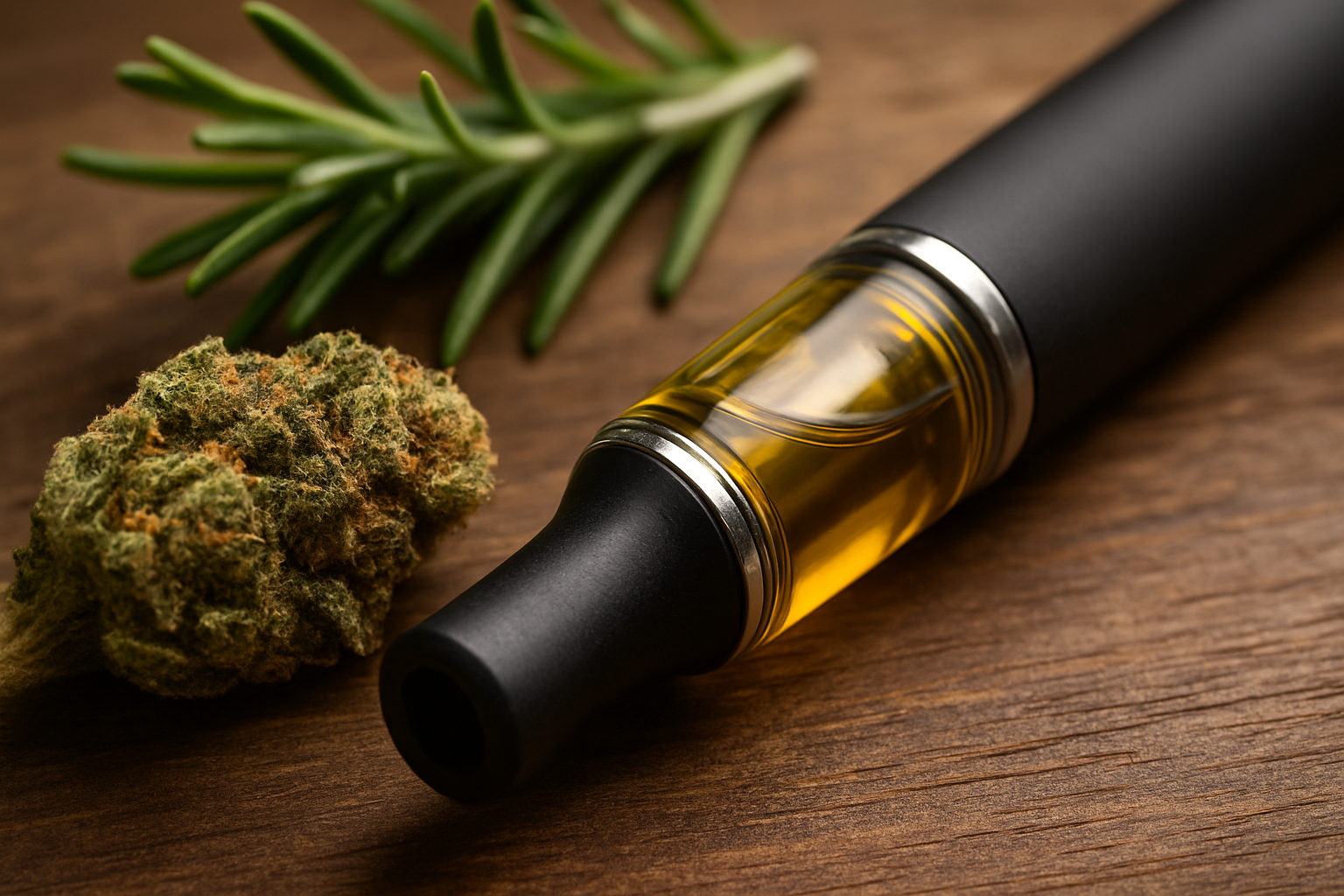
Terpene verstehen: Wie Aromen und Geschmacksstoffe das THC-Dampferlebnis beeinflussen
Hast du schon einmal an einem frischen Zweig Rosmarin gerochen? Der würzige Duft hat doch sicher auch bei dir sofort bestimmte Assoziationen ausgelöst, vielleicht an ein mediterranes Gericht oder e...


Discover how to purchase cannabis safely and responsibly in a regulated market. Learn more about the variety of products, quality standards and the legal purchase of cannabis.
Best quality
The products offered are subject to the highest quality standards and regular controls. Through direct contact with our dealers, we can offer you the best prices for your CBD products.
Certified dealers
We only work with professional and verified dealers. The products are subject to the highest quality requirements and are produced according to EU standards.
100% legal
Tell your customers about your payment methods.
Our partners
















